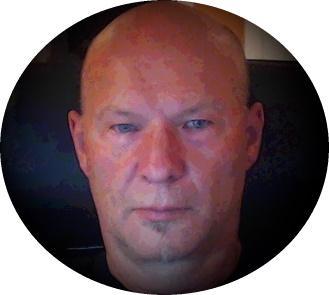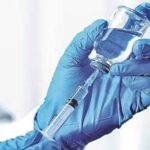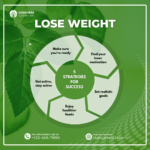The work of Harvard professor David Sinclair presents a kind of puzzle as his published research is generally interesting and important, but at the same time, I believe that he hypes anti-aging science. In addition, he promotes unproven supplements and lifestyle regimens that are supposed to battle aging.
His substantial commercial roles and interests in anti-aging efforts are also important for context here.
He has a new paper in the journal Aging. It has some surprising statements like moving towards “whole body rejuvenation.”
In humans.
Some form or other of the word “rejuvenation” is used 35 times in this paper. This struck me in reading it, probably in part because in dealing with unproven stem cell clinics over the years, one of their favorite words is “rejuvenation.”
Is rejuvenation a scientifically rigorous term? If so, how precisely has it been defined?
Let’s take a look at the new paper and the context.
Grateful to share our latest publication: We’ve previously shown age reversal is possible using gene therapy to turn on embryonic genes. Now we show it’s possible with chemical cocktails, a step towards affordable whole-body rejuvenation 1/17 https://t.co/J9c01lv5FQ
— David Sinclair (@davidasinclair) July 12, 2023
New David Sinclair paper tells mostly an old story
Some of the data in this paper are interesting, but the findings are generally not so new in my view. They can reverse aging-related phenotypes in cells by reprogramming.
Of course, a vast amount of past reprogramming work by dozens of other labs has already covered much of this. For example, many readers of The Niche will probably recognize the OSK-type reprogramming cocktail. It and similar cocktails have been used so many times before over the past 17 years and it’s also showing up in Fig. 2 here in the Aging paper. For reference, OSK means the combination of OCT4, SOX2, and KFL4.
The team goes on to show in the paper that chemicals can do some reprogramming too. This kind of small molecule approach (alone or together with genetic factors) also already has been shown by a variety of other teams even if some of the specific chemicals are somewhat different. I’ve written extensively as early as a decade ago on chemical reprogramming of cells.
OSK-mediated rejuvenation?
From the abstract: “We identify six chemical cocktails, which, in less than a week and without compromising cellular identity, restore a youthful genome-wide transcript profile and reverse transcriptomic age.”
Are the terms “youthful transcript profile” and “transcriptomic age” scientifically rigorous? It depends on whom you ask. These assays of age/youthfulness on reprogrammed cells are what seem relatively new to this paper.
Is that “youthfulness” element the source of the overexuberance in the media and on social media?
More practically speaking, could “OSK-mediated rejuvenation” actually do something useful in people someday? Could a pill mimic this kind of effect safely in the future? Sinclair seems to think it’s possible.
There would be risks, which don’t seem to get attention.
Recall that even without MYC in the reprogramming mix, OSK activation could potentially do harmful things too. For example, it wouldn’t be good to have a bunch of our cells become pluripotent stem cells again.
Risks of hype and unproven anti-aging regimens
Youthful RNAs or transcriptomes (if such things even are real) might sound good, but I wouldn’t want a bunch of teratoma popping up in my body.
I’ve included an H&E stained section from a teratoma in mice generated by research in my lab years ago from human iPS cells. We generated these iPS cells with OSK (and MYC).
Though it’s a beautiful picture, you wouldn’t be happy if these were in your body due to premature anti-aging clinical trial efforts.
To me what Sinclair is pitching with the idea of reversing aging in humans in the future seems far ahead of the data. Steve Horvath and others have published some very cool data in this space on epigenetic elements but is it time already for clinical trials?
Pushing back
I’m skeptical about this and I’m not the only one.
I asked a scholar in the stem cell and reprogramming field for their opinion on Sinclair’s claims and they said:
” As a stem cell scientist, I’m insulted by his unsubstantiated claims. At best, he will lead the unaware astray; at worst, he will diminish the credibility of all of us who do serious research with stem cells.”
In a negative review of Sinclair’s anti-aging book, Lifespan: Why We Age and Why We Don’t Have to, biologist Charles Brenner ends this way:
“The reach of Lifespan is a problem for the world precisely because a Harvard scientist is telling fictitious stories about aging that go nowhere other than continuing hype”
I’m not sure the public is hearing this kind of pushback though.
David Sinclair challenged by an unlikely source
Still, even The Daily Mail, reporting on the new paper, in a sense, challenges David Sinclair on some of his claims and recent tweets:
“Other scientists, including a Harvard professor, have said the study ‘is mostly hype and preliminary’.”
This other bit of info is important:
“Sinclair is named as a co-editor on the board of the journal that published the Harvard paper, which was received on June 30, 2023, accepted on July 4 and published on July 12.”
That’s a speedy review. Rigorous? It’s possible but the way this was published is unusual.
Why does this anti-aging exuberance matter? Why be concerned?
Many people may be getting the wrong idea about where the research stands and its translational implications. Some may start taking supplements based on the hype or making other potentially risky changes to their lives. Note that Sinclair’s tweets even caught the attention of Elon Musk who amplified it just by asking about it.
Technology that does interesting stuff in cells in a plastic dish or even in mice or other lab models will not always necessarily work in people. We’ve seen that so many times in research. Murine research is important and Sinclair mentions other animal models, but the jump into clinical research is a big step.
About those supposed anti-aging regimens
There’s also some other context here.
If you search for “David Sinclair” on YouTube you can find a slew of videos on other people’s channels with him seemingly promoting many kinds of unproven anti-aging supplements and regimens. These are often clips of interviews or talks.
I believe there’s a lot of hype in these videos.
Sinclair’s book (and his own associated YouTube channel) also make many claims.
Part of the challenge is that the neanimorphic Sinclair channels into some powerful elements of human nature related to aging and dying. Who wants to get old and die?
Looking ahead, will any of Sinclair’s various companies or perhaps future ones improve people’s lives? Extend them? I hope so but so far the data are way behind the aspirations in my view.
Like this:
This content was originally published here.




















